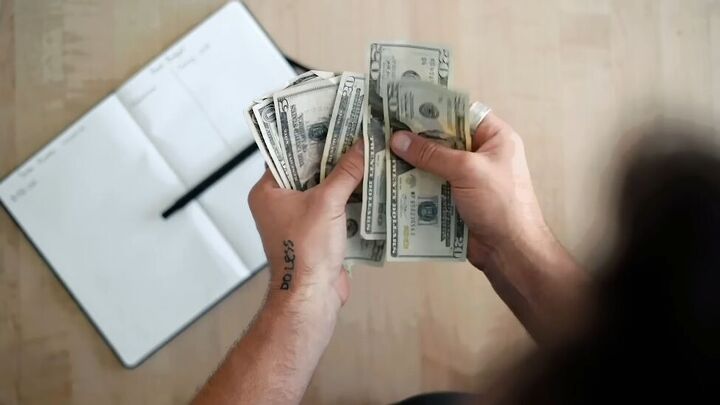20 "Rich Dad Poor Dad" Lessons That May Just Change Your Life

I recently read Robert T. Kiyosaki's “Rich Dad Poor Dad” and it changed my life. Today, I wanted to share with you 20 “Rich Dad Poor Dad” lessons, which may change your life, too. Let's get started.
1. Humans learn from making mistakes
School teaches us that making mistakes is a bad thing, and punishes us for them, but we learn to walk by falling down. Robert says: “We either succeed, or we learn”.
2. Money is an important topic to discuss
The book talks about how poor people never discuss finances, while the rich talk about them at the dinner table. Everyone cares about money, we spend our lives trying to get it, and it is okay to talk about it.
3. Playing it safe is not a good strategy
It keeps us stuck on having a secure job no matter the cost, instead of looking for actual freedom and happiness, and building real wealth.
4. A fancy degree and a job in a big company is not how you become wealthy
Instead, focus on studying money. Especially while you are young, work for experience, not for the salary. The experience and knowledge that you gain are life-changing.
5. Stop doing what you are doing
The definition of insanity is doing the same thing over and over and expecting different results. So if you are having money problems, instead of working harder, maybe take a step back and switch things up.
6. Use your desire and “greed” as motivation
As a minimalist, I do not need too much stuff, but everyone wants something, and for me, it is a Tesla. Whatever it is for you, use it as a carrot to dangle in front of yourself as motivation to get more money.
7. Do not say: “I cannot afford it”, ask: “How can I afford it?”
Instead of shutting off your desire, turn on your mind and think about what you can change in your life to be able to make it happen.
8. Give yourself a reputation
This works with any area of life, and specifically with money. If you see yourself as a wealthy person, ask yourself: what would a wealthy person do? This makes decision-making much easier.
9. Do your research before investing
If you do not want to lose money, first learn how to invest: learn about money and about stocks or real estate, or whatever you are thinking of investing in, so it does not turn into gambling.
10. We make choices every moment
Every second we decide how to spend our time, and this shapes our lives. If you want to have more money, you have to spend time studying money. After all, you are what you eat.
11. Pay yourself first
Instead of saving what you have left at the end of the month, and ending up never saving anything, invest or save first. That way, if you do not have enough money to pay your bills, you will have to be creative and figure out ways to start earning more money. Put pressure on yourself to improve your life.
12. Busy people are often the laziest
When faced with a problem, many people choose to work harder instead of trying to build wealth and stepping out of their comfort zone. Hard work is important, but it is not always the answer.
13. Stop focusing on toilets
A lot of people have fears that stop them from taking action. I often hear people say they will not invest in real estate because they do not want to fix toilets. Such small issues always have solutions. Instead, focus on the financial freedom that you would gain.
14. Be generous
Stop waiting until you are wealthy to start giving. The book says: “If you need help, then help somebody else. If you need knowledge, then try to teach people”. Focus on helping other people instead of focusing on yourself and what you don’t have.
15. Focus on assets, not liabilities
An asset is something that puts money into your pocket every month, and a liability takes money away. A house you own is actually a liability until you sell it, whereas a cash-flowing rental property is an asset.
16. The fear of losing money stops you from winning
For many people, the fear overpowers the joy of succeeding, therefore they keep playing it safe. If you want to have financial freedom, you need to overcome fear.
17. Surround yourself with people who are smarter than you
You do not need to be an expert in everything, but you need to know experts in everything. That way, when you have a question, you can hire somebody who is focused on that thing, and you can focus on what you are good at.
18. More money will not solve your problems
For many people, getting more money just means spending more money. Instead, focus on what you are doing with your money. Are you saving it? Are you wasting it? Are you investing it? Or are you just hanging on to it?
19. Invest in your brain
Robert Kiyosaki talks about how a $500 course made him a million dollars. You never know what one idea can completely change your life. So always focus on your most important asset - your brain.
20. Start minding your own business
You have to move past always trading your time for money. Your salary is not your best source of income. Start focusing on something that will continue to pay while you are not working, like stocks, real estate, or a business. Eventually, this may bring you freedom.
“Rich Dad Poor Dad” lessons
So this is what “Rich Dad Poor Dad” is all about. Everyone dreams about being wealthy, but very few actually take action and do something. Action always beats inaction. My main advice is: get out there and do something.
Have you read “Rich Dad Poor Dad”? Let me know your favorite books about money and finance in the comments below.
























Comments
Join the conversation
I have read Rich man Poor man. Very similar. I really like your summation. I find it inspiring. What I often wonder is; are the self help authors making their money strictly on the sales of their books? Or are they looking for inspiration and fulfillment themselves?
RG
If I give up my disability benefit then when I need it, I might not be able to get it back. When I tried giving up disability I couldn't afford Medicare and owed a thousand dollars.